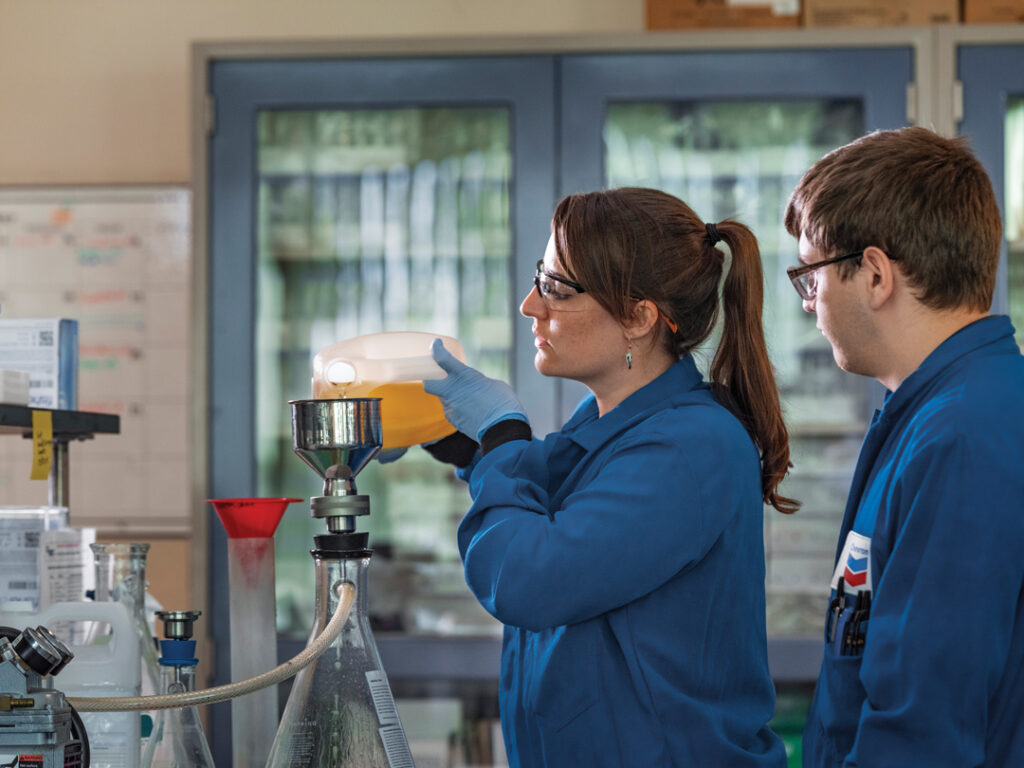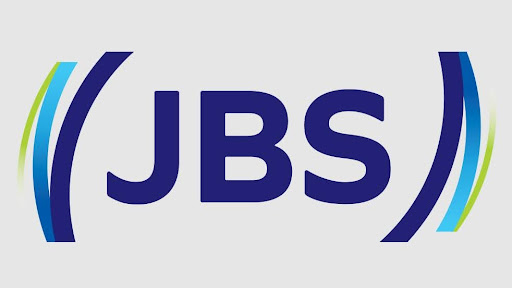Insta-Pro International puts down roots in Grimes
Soy processing manufacturer expects continued double-digit sales growth, diversification

Insta-Pro International is well-known among soy and feed production companies globally, but the market-leading company in soy processing technology largely remains a “best-kept secret” in its own Central Iowa backyard.
The manufacturer, which split off from former parent Triple F Inc. in 2008, specializes in building custom soy processing machinery for food and feed producers worldwide. Although it does business as Insta-Pro International, the company’s official name is Heartland Agri Partners LLC. A group of private investors, including some of the company’s key employees, owns the assets and the Insta-Pro brand.
Insta-Pro’s primary technology products are extruders and presses used to process soy into animal feed and human food products. Approximately two-thirds of demand for Insta-Pro’s processing machinery is driven by international customers, with producers in African countries leading the sales growth.
To accommodate its growth, Insta-Pro recently moved its entire operation into a 63,000-square-foot leased headquarters space in Grimes. The newly built facility at 2100 S.E. Gateway Drive provides more than twice the assembly and research/development space than its previous 22,500-square-foot location in Urbandale. It also enabled the company to bring its 33 Iowa employees, who had been scattered across several buildings in Urbandale and Grimes, back under one roof.
“When we designed this facility, we had a 10-year view of growth, and we sized our facility to support that growth,” said Kevin Kacere, Insta-Pro’s president and CEO. He joined the company in that role in 2008 after having worked in product development and management positions with the Amana Appliance Co. and then Maytag Corp.
Insta-Pro sources about two-thirds of components for the extrusion machinery that it assembles at its Grimes facility from Iowa-based suppliers, and the remainder of its components — all U.S.-made — are sourced as close to Iowa as possible, Kacere said.
“Over the last 10 years we’ve grown about 250 percent from the company we bought 10 years ago to now, with obviously double-digit growth on average every year,” he said. “That’s our plan to continue over the next 10 years. Our story is really the same — continue to invest in salespeople, continue to invest in more R&D that will drive and support that growth.”
As an assembly operation, Insta-Pro ships in components that are fabricated by its vendors, and then assembles the equipment in the Grimes facility to customers’ specifications. The parts are given a coat of Insta-Pro’s green and yellow colors in an in-house paint booth before assembly.
In addition to incorporating natural light with numerous windows in the assembly area, the new space also provides a roomy shipping area where Insta-Pro teams can efficiently position outgoing pallets of equipment to be quickly loaded into shipping containers when they arrive.
An adjacent research and development area in the facility provides three dedicated testing lines in which equipment can be set up, both for in-house development and for customers to work with equipment in conjunction with Insta-Pro’s R&D team.
Joanne Nikles, Insta-Pro’s vice president for HR and administration, said Insta-Pro emphasizes a team-oriented culture and is hopeful that being under one roof in a building that incorporates collaborative meeting spaces will encourage additional innovation. The company has a good mix of Iowa State University and University of Iowa graduates, although more hires lately have been from ISU, which has provided most of the company’s engineers, she said. The company currently has some open positions and expects to reach 37 employees by year-end.
“We have a fun rivalry between the Iowa and Iowa State grads, and it’s definitely great for our team culture; they have a lot of fun with it,” Nikles said. “And not to be outdone, we also have an intern from the University of Northern Iowa this year, too.”
Increasing demand for protein, particularly for non-genetically modified organism (non-GMO) and organic sources, has driven international growth, said Karl Arnold, Insta-Pro’s vice president of marketing and sales. The company divides its global markets into five regions, and over the past 10 years has sold its grain processing machinery in about 100 countries around the world.
“In Africa alone, we didn’t have anyone heading up our Africa marketplace [in 2008],” Arnold said. “Now we’ve got three people that are focused on that marketplace. Beyond that, we’ve added sales people in the United States and Latin America. I would say Africa has probably had the biggest growth impact for us.”
In addition to full-time employees and contractors, Insta-Pro works with a network of independent sales agents and plans to expand that network, Arnold said. “So that allows us to have more boots on the ground in the international market,” he said.
Myriad factors are driving growth in demand, Arnold said.
“In some countries, you see a need for non-GMO and organic food products. Those areas have seen double-digit growth in food segments compared to traditional food markets that have been stagnant around 3 percent growth.
“We’re seeing specifically in Asia and especially in Africa with the growing population, there are increases in income levels, which is driving an ability for them to purchase and eat meat-based proteins, which is requiring more soy [feed] ingredients. We’re seeing growth in fish as a protein source worldwide. On top of that, there are cultures that are looking for plant-based proteins, so the ability to process soy and convert it into a textured soy protein or corn-soy blend products are things that we’re seeing continue to grow.”
Because Insta-Pro’s technology is designed more for small to medium-sized processors, “our technology fits well internationally where the infrastructure is not in place to support a massive plant,” Kacere added. “So our technology solution — where you grow crops locally, process crops locally, and feed them locally — that model just fits real well internationally. That’s why Africa has been one of our largest segments over the last few years, and we expect it to continue to grow.”
Although the majority of Insta-Pro’s technology is devoted to soy processing, the company is looking to expand its expertise in mechanical processing into other areas.
“Strategically, diversification is at the top of my list, both regionally and in product segments,” Kacere said. “We want to diversify our revenue and not be so locked in to any particular region or country, because those economic conditions go up and down. That’s where the investment in engineering and R&D to develop our technology in other areas [is important].”
Among those developments, Insta-Pro has improved its technology significantly in the shaped feed industry for pet food and fish feed applications, and has also made advancements in textured soy protein for meat replacement and meat additives. The company has also expanded its ability to process seeds other than oilseeds, such as in new technology for gelatinizing corn for improved digestibility.
“Strategically, we still want to be [focused] on mechanical processing and be centered around extrusion technology, which is our competitive advantage,” Kacere said. “But then we’re taking and expanding that into other technologies where we can add value.”










